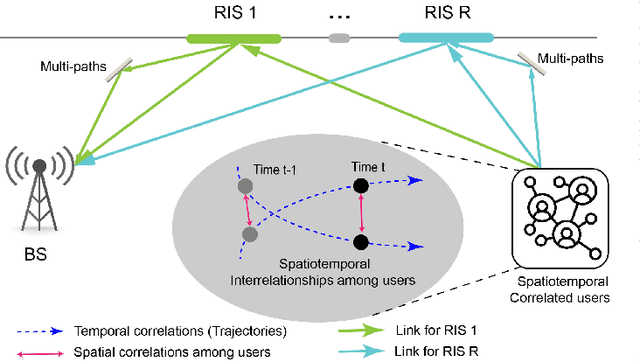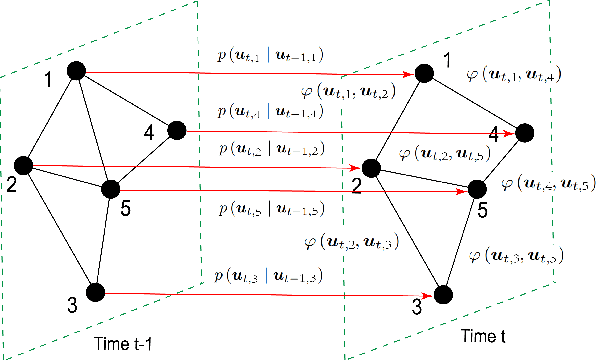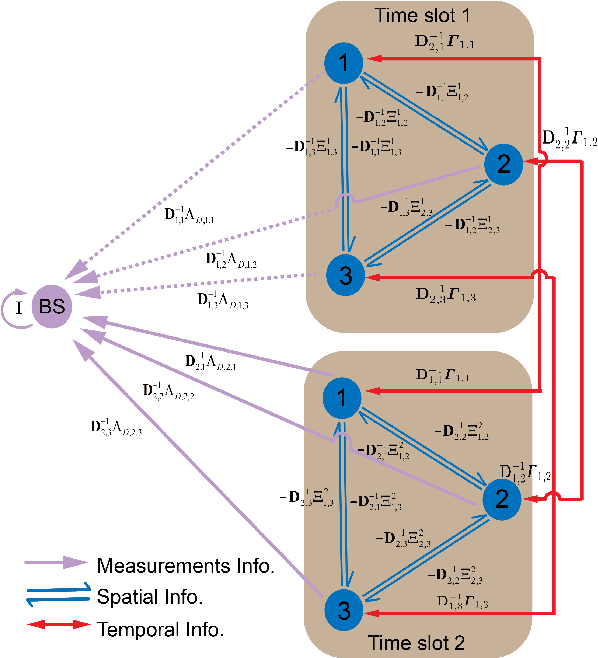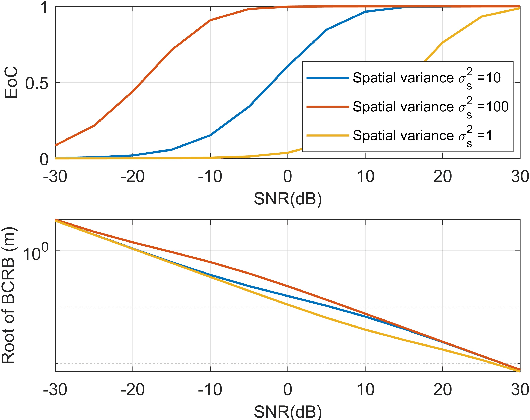Localization and Tracking for Cooperative Users in Multi-RIS-assisted Systems: Theoretical Analysis and Principles of Interpretations
Paper and Code
Apr 07, 2025



Localization and tracking (LocTrack) are fundamental enablers for a wide range of emerging applications. Reconfigurable intelligent surfaces (RISs) have emerged as key components for enhancing the LocTrack performance. This paper investigates a multi-RIS-assisted multi-user (MRMU) LocTrack system, where multiple RISs collaboratively reflect the position-bearing signals for information fusion at the base station, leveraging spatial-temporal correlations in user positions. While studies have shown these correlations improve localization accuracy, their trade-offs with system complexity remain unclear. To address this gap, we characterize the effectiveness of spatial-temporal correlation priors (STPs) utilization in MRMU LocTrack systems using a metric, termed efficiency of correlation (EoC). To further elucidate correlation propagation and RIS interactions, we provide a "correlation information routing" interpretation of EoC through random walk theory. EoC provides a principled performance evaluation metric, that enables system designers to balance localization accuracy enhancement against the increased complexity. Additionally, we investigate the error propagation phenomenon, analyzing its convergence and asymptotic behavior in MRMU LocTrack systems. Finally, we validate the theoretical results through extensive numerical simulations.
 Add to Chrome
Add to Chrome Add to Firefox
Add to Firefox Add to Edge
Add to Edge